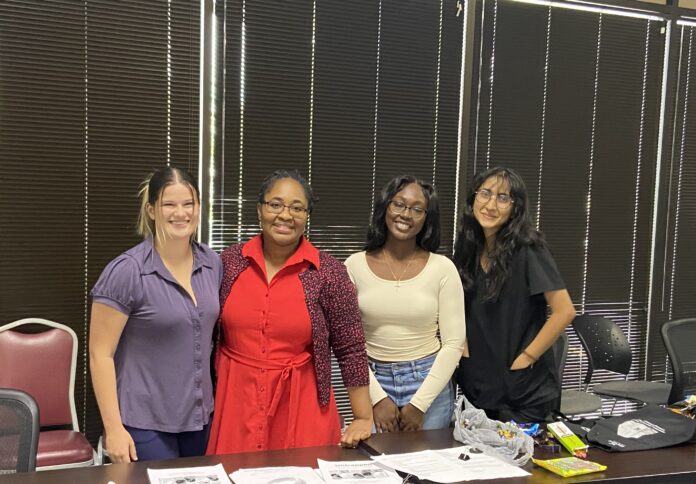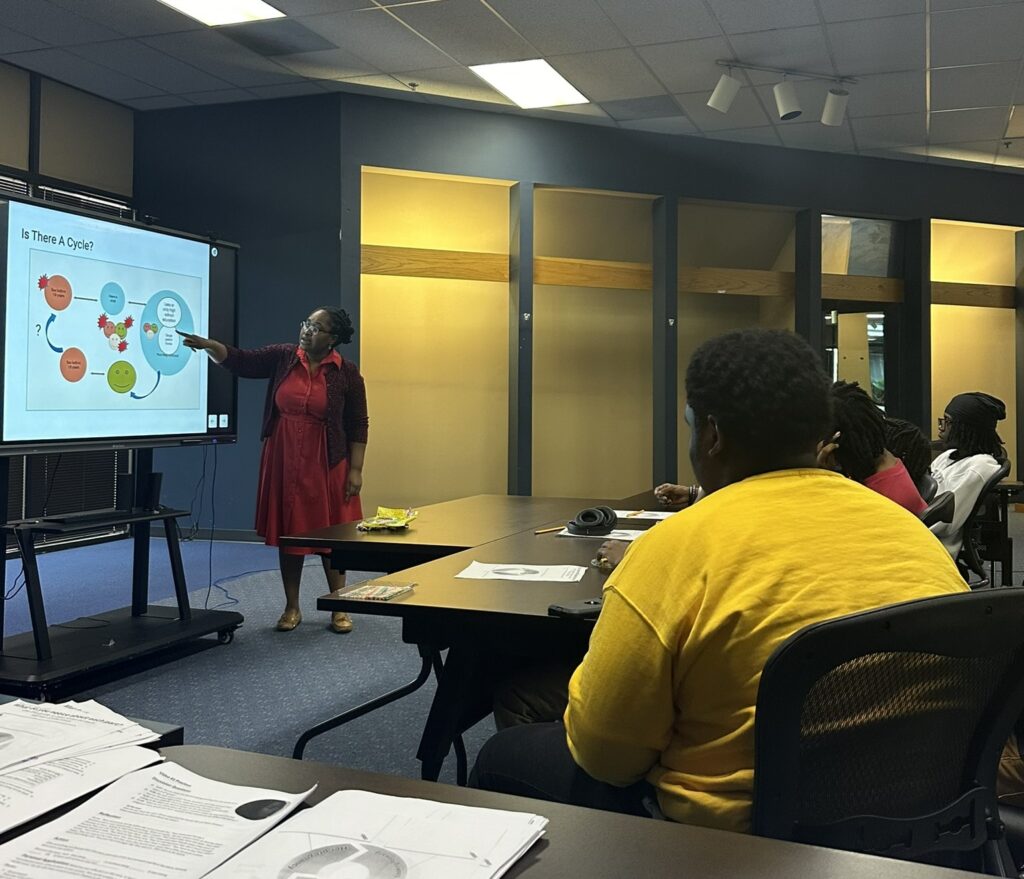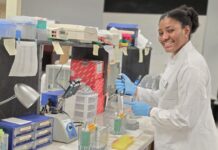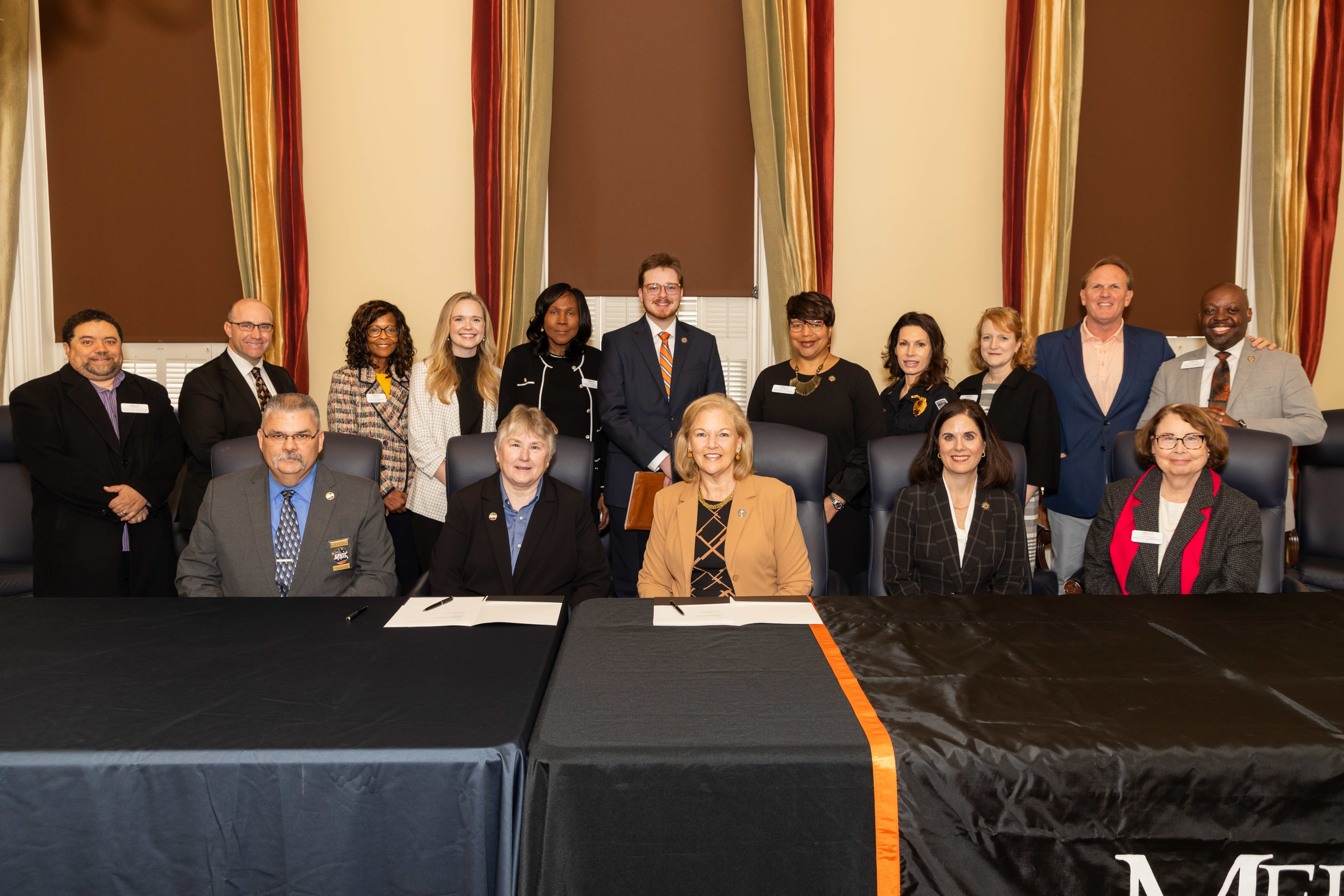
A Mercer University professor is reaching Middle Georgia teens through a unique pregnancy prevention program that is tailored to them and harnesses the power of storytelling.
Dr. Chinekwu Obidoa, associate professor of global health studies and Africana studies, used her extensive research to develop the “Untrapped: Teen Pregnancy Prevention Curriculum,” which is currently being piloted with a second Macon-Bibb County youth program.
“It’s about the social context in which teen pregnancy happens,” she said. “The emphasis will be on the social determinants of teen pregnancy risk, specifically sexual decision-making and relationship dynamics within the context of the family and neighborhood realities of teens in Middle Georgia.”
Dr. Obidoa has received three Mercer Provost Seed Grants for her research and work related to this project, as well as financial support from the Griffith Foundation in partnership with the Ruth Hartley Mosley Memorial Women’s Center.
The curriculum stemmed from Dr. Obidoa’s research on HIV and AIDS in Middle Georgia over the past decade. In 2015, she received a $20,000 grant from the National Institutes of Mental Health for her pilot study, “Exploring the Social Context of HIV Sexual Risk-Taking among African American Emerging Adults (21-25 years) in Bibb County, Georgia,” as part of the Research Education Institute for Diverse Scholars Program at Yale University.
Georgia leads the nation in HIV and AIDS rates, with Atlanta considered a “global hotspot” for the epidemic, Dr. Obidoa said. She sought to better understand the contextual factors underlying high rates in the Middle Georgia region.
“The fact that nobody was researching this, nobody was trying to understand what was happening to the most at-risk population was mind-boggling,” she said.
She collected survey data and conducted interviews with 150 African Americans ages 21-25 in Macon to explore the context of HIV sexual risk, and she discovered that 51% of them had a child, revealing a pattern she was yet to understand.

“Immediately, the desire and hunger to understand what’s happening with teen pregnancy in Macon just went through the roof,” said Dr. Obidoa, who explored these elements in her next study, titled “Break Every Chain: Understanding the Cycle of Teen Pregnancy and HIV Risk among African Americans in Bibb County.” “In my field, we don’t just talk about the problem — we talk about where the problem comes from.”
During this study, she collected about 30 stories from grandmothers, mothers, emerging adults who were teen moms, and teen moms in Macon.
“When I started looking at the transcripts, I couldn’t believe my eyes,” she said. “What was in the stories? Sexual assault, neglect, family dysfunction, incarceration, serial unemployment and mental health problems, among others, all had something to do with the endemic and cyclical nature of teen pregnancy in Macon.”
From these interviews, she mapped out interconnected root factors of the area’s high teen pregnancy rate, which also include concentrated poverty, crime, drugs and addiction, intergenerational imprisonment, community imbalance, inadequate school and health care systems, and some of Macon’s historic legacies.
“This is about the breaking down of family units and the normalization of incomplete families in Macon,” Dr. Obidoa said. “These issues did not come from a vacuum. Even Macon has incredible legacies of Jim Crow laws and slavery, residential segregation, discrimination and intergenerational stress syndrome embedded within the psyche of people.”
Dr. Obidoa began to compile the interviews from her study into a book but later decided that a documentary would be a more effective approach. With grant funding of $17,000 from the Griffith Foundation, she worked with Atlanta-based WOB Films to produce videos with actors telling five of the stories in spring 2023. She also developed a five-week curriculum to go with the videos. Recently, five more stories were recorded at Tattnall Square Center for the Arts in Macon, and editing of those videos and a longer video with a cohesive narrative that incorporates all 10 stories are in the works.
Macon-Bibb County’s pregnancy rate in 2022 for teens ages 15-19 was 29.9 per 1,000 live births, almost twice the state average. In addition, Black teens are three times more likely to become pregnant than white teens, Dr. Obidoa said.
Most other teen pregnancy prevention programs are rigid and take a one-size-fits-all approach, Dr. Obidoa said. Her curriculum, however, is values- and discussion-based and focuses on social determinants.
“These (other) curricula are not tailored to fit the Middle Georgia African American teen and the nuances about their idiosyncrasies, their social realities, their expressions, their language,” Dr. Obidoa said. “(‘Untrapped’) is culturally relevant and tailored. We help young people begin to understand how circumstances in their world can set up or trap them. Hopefully, we can get to that space where we talk about those deep things. It’s bringing something that doesn’t exist already into the marketplace to handle teen pregnancy.”
The curriculum educates participants on the situational and contextual risk factors of teen pregnancy in Macon and how such factors can shape their health and lives.

“Our curriculum uses the voices and stories of people who grew up in Macon, and I think it makes it more relatable and impactful,” said Annie Potts, a junior biology and global health studies double-major who got involved in the project as an intern for Dr. Obidoa’s Coalition for Collaboration on HIV/AIDS Research and Intervention in Middle Georgia. “I’m hoping that the curriculum will be impactful, and it will be engaging enough for (teens) to take it seriously. We tried really hard to replicate the (interviewees’) stories exactly and relate to these kids in their own community.”
Reema Chande, a senior global health studies and psychology double-major who has served as Dr. Obidoa’s research assistant on the project, said the curriculum uses an evidence-based, intervention-driven approach that doesn’t stigmatize or shame having a child.
“There’s a level of stigmatization of teen pregnancy, like your life will be over if you get pregnant as a teen,” Chande said. “A lot of the women, they’re ambitious people who had goals and very structured outlooks on lives. But a lot of times, because of sexual violence or something outside of their agency, (pregnancy happened). It’s not a life sentence that ends your potential.”
For each week of the curriculum, participants watch an excerpt from one of the filmed stories and reflect on what they’ve seen and their actions for the future, Dr. Obidoa said. Facilitators ask them questions related to decision-making, critical thinking, values and social determinants. The teens also journal about things that stand out to them.
At the end of the program, participants collaboratively develop a “problem tree” that lists underlying contributing factors to teen pregnancy, which serves as a “structural intervention” and a reminder of factors that could impact them, Dr. Obidoa said.
The curriculum is not just for teen girls but teen boys as well. It is being piloted with a group of teen boys from the Mentors Project of Bibb County now, and it was previously tested in co-ed classrooms at Campus Clubs. Dr. Obidoa leads these sessions, with assistance from Mercer students.
“It takes two to tango. It’s important that we speak to men’s role in this as well,” Chande said.
Pre- and post-program surveys from the Campus Clubs pilot showed a positive impact and a change in students’ thoughts and attitudes from the beginning to the end of the five weeks, Dr. Obidoa said. The students were engaged and had some great discussions. They liked having the freedom to talk and express themselves, an essential aspect of the program’s design that helped them to connect with the material.
“I was really surprised by how willing the students were to engage in discussion,” Potts said.
Dr. Obidoa and five of her students are currently at the HIV Research for Prevention Conference of the International AIDS Society in Lima, Peru, to give a presentation on this intervention program and another research project.
Dr. Obidoa said the finishing touches on the curriculum will be made this semester, and it will officially launch in the spring. A website is also being built for the program.
“I think that it has a lot of use for school environments,” Chande said. “I think that it’s also a really valuable tool for educating health professionals, teachers or people who work with teenagers in any respect. They need to know about the things that affect teen pregnancy risks. I hope to see it grow beyond the classroom setting and be adapted for different industries.”









